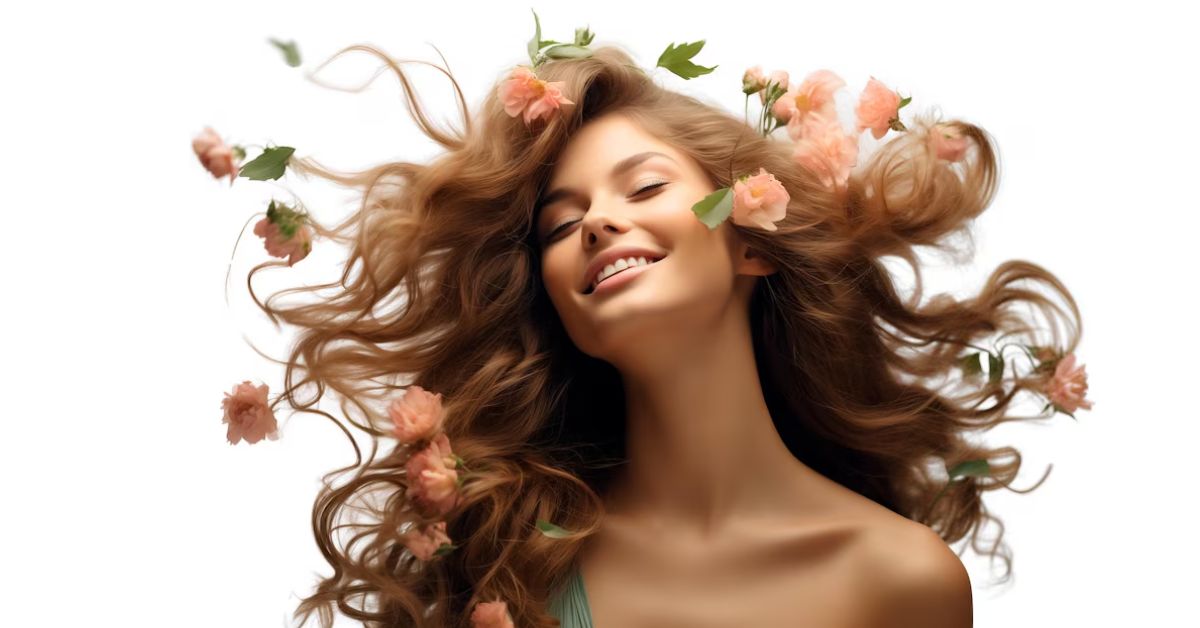Essential oils have been used for centuries for their therapeutic properties, offering benefits that go beyond their delightful fragrances. In haircare, essential oils can address a variety of concerns, from promoting growth and preventing hair loss to conditioning and treating scalp issues. This article explores the benefits of essential oils for best haircare products and provides practical tips on how to use them effectively.
Benefits of Essential Oils for Haircare
Promote Hair Growth
Rosemary Oil: Known for its ability to stimulate hair growth by improving blood circulation to the scalp.
Peppermint Oil: Provides a cooling effect that invigorates the scalp and promotes hair growth.
Prevent Hair Loss
Lavender Oil: Has been shown to promote hair growth and reduce hair loss due to its ability to improve circulation and reduce stress.
Cedarwood Oil: Balances the oil-producing glands in the scalp, which can help reduce hair loss.
Improve Scalp Health
Tea Tree Oil: Possesses antibacterial and antifungal properties that help treat dandruff and other scalp infections.
Eucalyptus Oil: Soothes an itchy scalp and treats conditions like dandruff.
Strengthen Hair
Chamomile Oil: Conditions the hair and improves its softness and strength.
Sandalwood Oil: Helps to add moisture and shine to the hair, preventing dryness and brittleness.
Add Shine and Smoothness
Argan Oil: Rich in antioxidants and fatty acids, it adds shine and smoothness to hair.
Ylang Ylang Oil: Conditions the hair and adds a natural shine.
How to Use Essential Oils for Haircare
- Scalp Massage
- Benefits: Improves circulation, promotes hair growth, and enhances the absorption of nutrients.
- How to Use:
- Mix a few drops of essential oil (e.g., rosemary or peppermint) with a carrier oil (e.g., coconut or jojoba oil).
- Massage the mixture into your scalp using gentle, circular motions.
- Leave it on for at least 30 minutes, or overnight for deeper conditioning, then rinse thoroughly.
- Hair Masks
- Benefits: Deeply condition the hair, provide nutrients, and address specific hair issues.
- How to Use:
- Combine essential oils with natural ingredients like honey, yogurt, or avocado.
- Apply the mixture to your hair, focusing on the ends and scalp.
- Cover your hair with a shower cap and leave the mask on for 20-30 minutes.
- Rinse thoroughly and shampoo as usual.
- Conditioners and Rinses
- Benefits: Add moisture, shine, and manageability to the hair.
- How to Use:
- Add a few drops of essential oil (e.g., chamomile or sandalwood) to your regular conditioner.
- Alternatively, mix essential oils with water or apple cider vinegar for a refreshing rinse.
- Apply after shampooing, leave for a few minutes, then rinse thoroughly.
- Leave-in Treatments
- Benefits: Provide ongoing nourishment and protection for the hair.
- How to Use:
- Mix essential oils with a light carrier oil or aloe vera gel.
- Apply a small amount to the ends of your hair or areas needing extra care.
- Style as usual, without rinsing out the treatment.
- Dandruff Treatment
- Benefits: Treats and prevents dandruff and other scalp conditions.
- How to Use:
- Combine tea tree oil with a carrier oil or aloe vera.
- Massage into the scalp, leave for 15-20 minutes, then rinse thoroughly.
- Use regularly to maintain a healthy scalp.
Choosing the Right Essential Oils
Selecting the appropriate essential oils for your specific hair needs is crucial. Here’s a guide to some of the most effective oils:
- For Hair Growth: Rosemary, peppermint, lavender, cedarwood.
- For Dandruff: Tea tree, eucalyptus, peppermint.
- For Dry Scalp: Lavender, chamomile, sandalwood.
- For Oily Scalp: Lemon, rosemary, cedarwood.
- For Strengthening Hair: Chamomile, sandalwood, argan.
- For Adding Shine: Ylang ylang, argan, lavender.
Safety Tips for Using Essential Oils
While essential oils can be highly beneficial for haircare, it’s important to use them safely:
- Dilution: Always dilute essential oils with a carrier oil before applying them to your scalp or hair to avoid irritation or allergic reactions.
- Patch Test: Perform a patch test before using a new essential oil to ensure you do not have an adverse reaction.
- Quality: Use high-quality, pure essential oils. Look for oils that are 100% pure, therapeutic grade, and preferably organic.
- Avoid Ingestion: Do not ingest essential oils unless you are under the guidance of a qualified healthcare professional.
- Consultation: If you are pregnant, nursing, have a medical condition, or are taking medications, consult with a healthcare provider before using essential oils.
DIY Haircare Recipes with Essential Oils
Here are a few easy DIY recipes to get you started:
- Hair Growth Serum
- Ingredients: 10 drops rosemary oil, 10 drops peppermint oil, 2 tablespoons jojoba oil.
- Instructions: Mix all ingredients in a dropper bottle. Apply a few drops to your scalp and massage in. Leave overnight and rinse in the morning.
- Anti-Dandruff Hair Mask
- Ingredients: 5 drops tea tree oil, 3 drops eucalyptus oil, 2 tablespoons coconut oil.
- Instructions: Mix all ingredients and apply to your scalp. Leave for 30 minutes and rinse thoroughly.
- Moisturizing Hair Conditioner
- Ingredients: 5 drops chamomile oil, 3 drops sandalwood oil, 2 tablespoons of your regular conditioner.
- Instructions: Add essential oils to your conditioner. Apply after shampooing, leave for a few minutes, then rinse.
Conclusion
Essential oils can be a powerful addition to your hair care routine, offering a natural way to promote hair growth, reduce hair loss, and maintain a healthy scalp. By understanding the benefits of different buy essential oils online and how to use them effectively, you can achieve healthier, stronger, and more beautiful hair. Always use essential oils safely and enjoy the numerous benefits they bring to your hair care regimen.





Comments